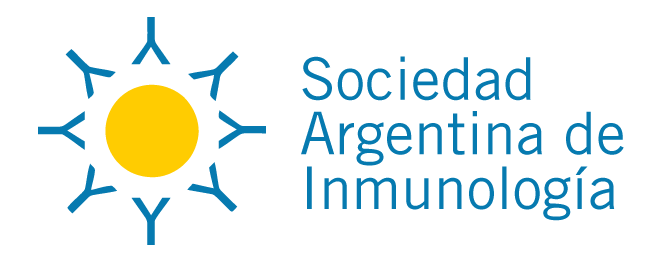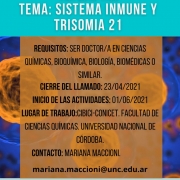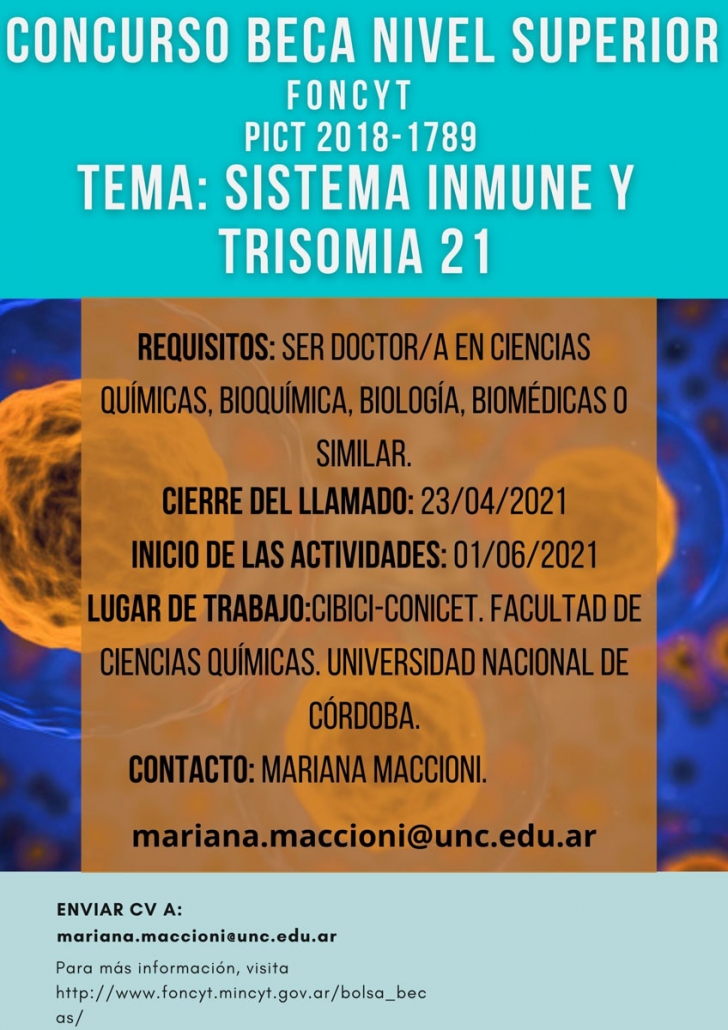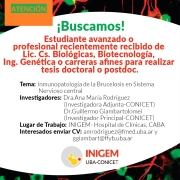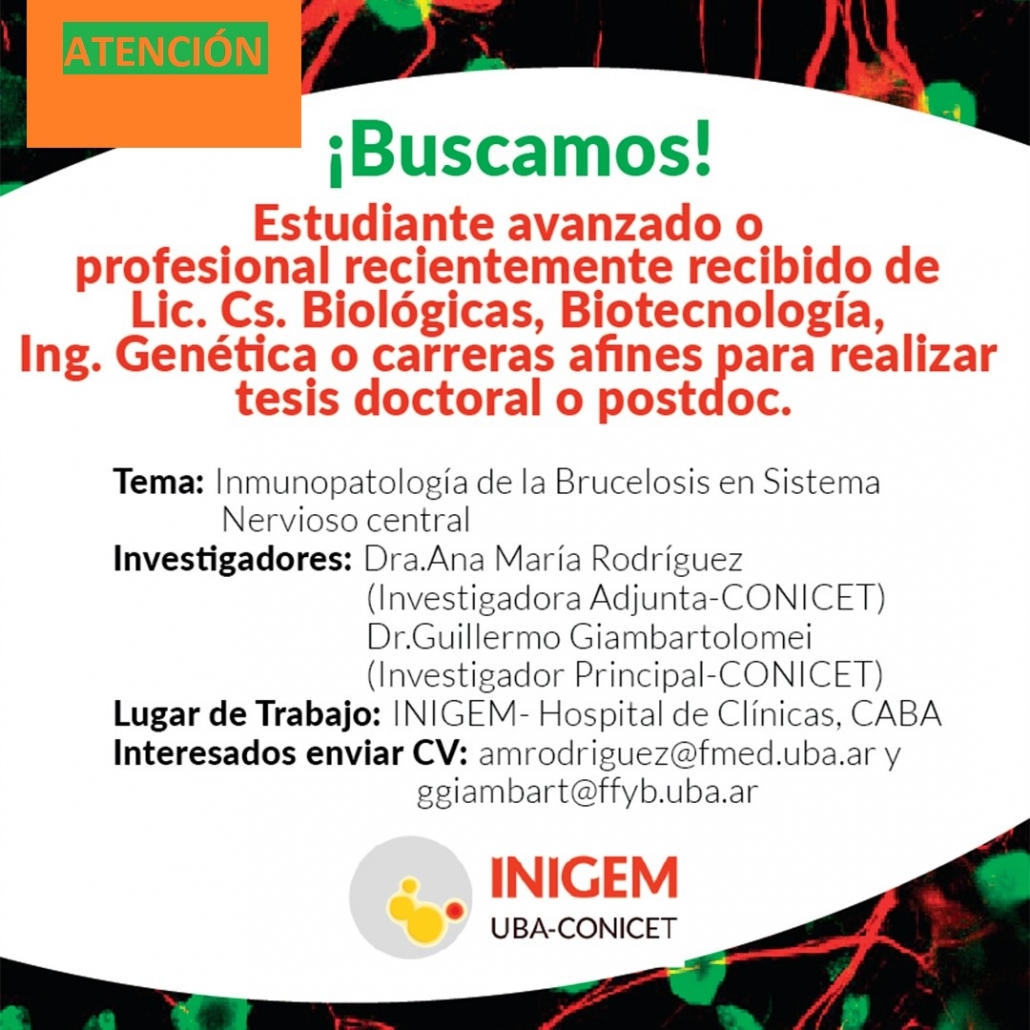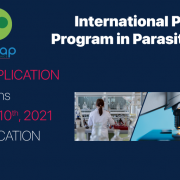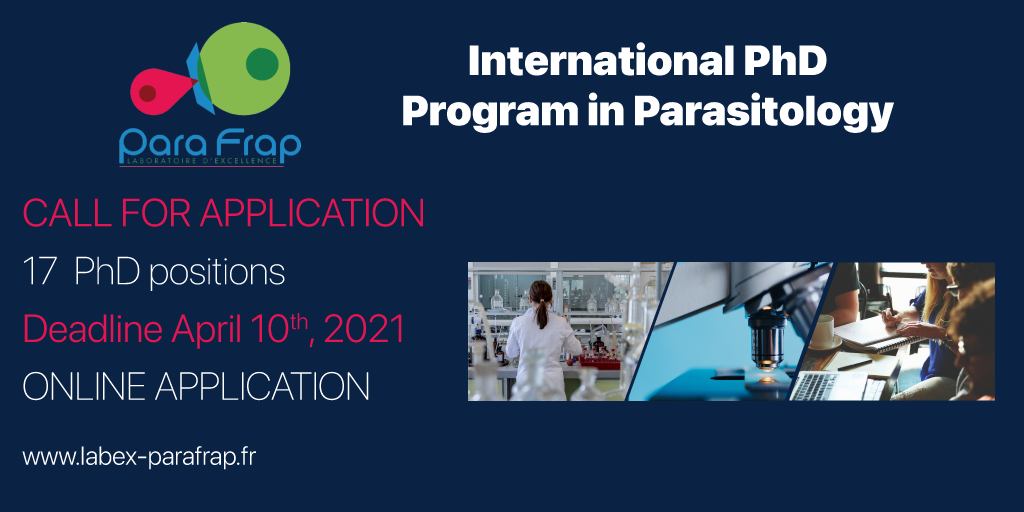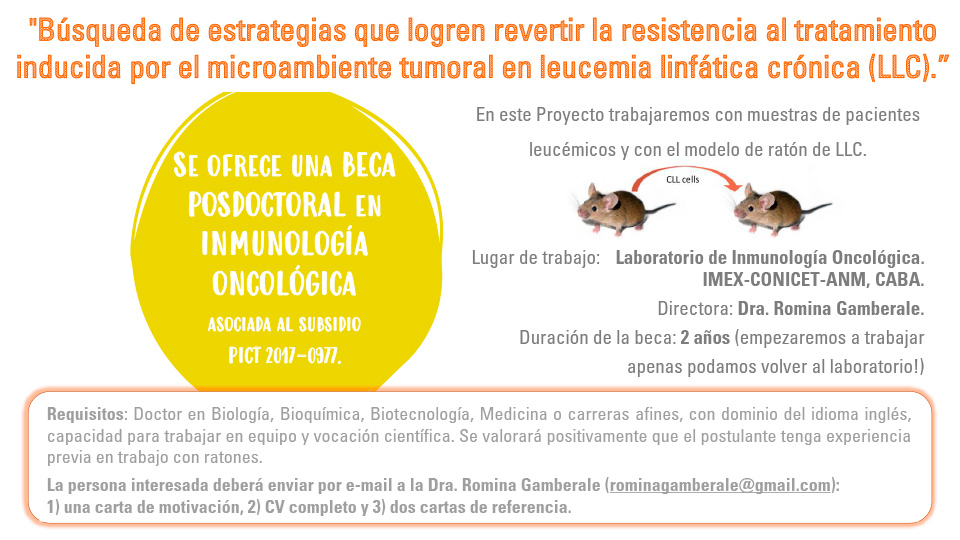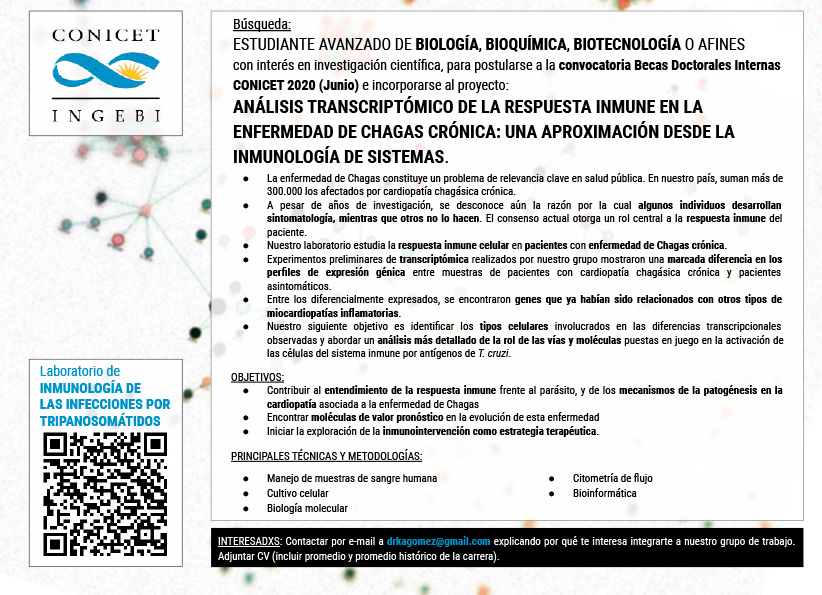36-month postdoctoral offer in cell biology, imaging and immunometabolism in the context of host-pathogen interaction, CNRS IPBS, Toulouse, FRANCE
Principal Investigator
Christel Vérollet (CR1/INSERM)
Team of Isabelle Maridonneau-Parini (DR1/INSERM), “Phagocyte migration and differentiation”, IPBS/CNRS, Toulouse
Website: http://www.ipbs.fr/index.php/member/christel-verollet
Co-principal Investigator
Geanncarlo Lugo-Villarino (DR2/CNRS)
Team of Olivier Neyrolles (DR1/CNRS), “Mycobacterial Interactions with Host Cells”, IPBS/CNRS
Website: http://www.ipbs.fr/index.php/member/geanncarlo-lugo-villarino
Title of the Project
Cellular and molecular mechanisms involved in tuberculosis-mediated exacerbation of HIV-1 infection in macrophages:
focus on intercellular communication and lipid networks
Context and Project
Acquired Immune Deficiency Syndrome (AIDS) and TB are among the deadliest diseases due to a single infectious agent.
Worsening these public health issues is the fact that the two pathogens responsible for these diseases, Mycobacterium tuberculosis (Mtb) and the human immunodeficiency virus (HIV-1), respectively, are frequently associated. Clinical evidence clearly identifies TB as an aggravating condition of HIV-1 pathogenesis. Yet, the mechanisms by which Mtb
exacerbates HIV-1 infection need further investigation. We recently reported the importance of macrophages in HIV-1 exacerbation within the TB co-infection context (Souriant et al.,
2019 Cell Reports; Dupont et al., 2020 eLife). We showed that TBassociated microenvironments increase susceptibility of human macrophages to HIV-1 infection and spread (Souriant et al., 2019).
The formation of tunneling nanotubes (TNT), membranous channels connecting two or more cells over long distance, was crucial to the HIV-1 exacerbation induced by Mtb (Souriant et al., 2019). In addition, we demonstrated that TB-associated microenvironments alter TNT dynamics through the induction of the expression of the Sialic acid-binding Ig-like lectin 1 (Siglec1/CD169) receptor (Dupont et al., 2020). Inhibition of Siglec-1 resulted in a decrease in the binding and transfer of HIV-1 among macrophages, and diminished TNT length and the hallmark characteristic of mitochondria transfer to neighbor cells (Dupont etal., 2020). While these studies highlight the capacity of TB to alter TNT formation and functional dynamics, the precise mechanisms for how this is accomplished remain unknown at large.
Cholesterol and lipids are known to increase membrane rigidity and are thought to be critical for TNT stability and other intercellular communication processes. Interestingly, we have demonstrated that TB-associated microenvironments dysregulate the metabolic and lipid networks in macrophages (Genoula et al., 2018; Genoula et al., 2020; Marin Franco et al., 2020). Therefore, we hypothesize that this dysregulation of lipid networks might alter intercellular communication mechanisms, complementing and/or enhancing the function of Siglec-1 during HIV-1 infection. The project will characterize the lipid factors responsible for the modulation of the metabolic and activation state by Mtb and dissect the role of these lipid candidates in the exacerbation of HIV-1 infection in macrophages.
Job description
We are looking for a highly motivated post-doctoral researcher with a specific interest in cell imaging and immunometabolism in the context of host-pathogen interactions, and excellent track record to identify and solve TNT between macrophages Scanning electron microscopy @Poincloux scientific problems. The employment is for 3 years, aiming to better understand the HIV-1/Mtb co-infection. General responsibilities include design, implement and interpret experiments, both independently and in collaboration, and communicate research and findings in a clear and concise manner. Applicant is expected to co-direct a PhD student to be recruited simultaneously in this project; thus previous mentoring experience is required. Last, the selected candidate will participate to an international collaboration consortium with Dr. Luciana Balboa, CONICET (Argentina). Altogether,
this job position is designed for a candidate looking to hone his/her leadership skills as an independent investigator.
Team consortium and environment
The project is a full collaboration between two teams at IPBS (http://www.ipbs.fr), Toulouse (France), supported by an international consortium, Laboratoire International Associé (LIA, #1167), with Dr. Luciana Balboa, CONICET (Buenos Aires, Argentina). The state-of-the-art imaging technology in the Biological Safety Level 3 (BSL-3) facilities at IPBS and
the combination of expertise between the two teams assure the successful outcome of this project.
Qualifications required
• A PhD degree preferably in cell biology, biochemistry or immunology.
• Scientific excellence evidenced by publication track record.
• Hands-on experience of cell imaging and cell metabolism. Expertise in lipid biology will be highly prioritised.
• Strong computer literacy including experience with image analysis, FlowJo, Prism, and Excel.
• High levels of initiative, autonomy and the ability to assume a high level of responsibility.
• Strong interpersonal and mentoring skills needed to effectively deal with students and people of collaborating groups.
• Proficiency in English in order to manage our LIA partnership with Argentina; oral communication in Spanish is a plus.
Additional qualifications desired
• Experience of cell culture of mammalian primary cells and cell lines, and basic immunology assays such as multi-color
flow cytometry, immunofluorescence and ELISA.
• Knowledge of histology, quantitative PCR, and general lab protocols and methodologies used in the biological sciences.
• Experience in working in BSL-3 facilities.
• Experience in editing and writing original research articles and grant applications is an asset.
Employment
Starting on October 1st, 2020, the job position is funded for 36 months by an ANRS (Agence Nationale de la recherche sur le SIDA et les Hépatites) grant.
The application should be written in English and include:
- Letter of motivation with a short description of the applicant’s previous research and why the applicant considers
her/himself a good match for the position (1-2 pages). - Curriculum vitae, including a description of relevant skills and experiences, as well as a full publication list.
- Copy of PhD diploma.
- Names, e-mail addresses and telephone numbers to 2-3 reference persons.
Contact
Application should be sent to Christel Vérollet (verollet@ipbs.fr) and Geanncarlo Lugo-Villarino (lugo@ipbs.fr)
Related Publications to the Project
• Marín Franco et al., “Host-derived lipids from pleural effusions of TB patients impair anti-mycobacterial functions in human
macrophages though HIF-1α-mediated metabolic reprogramming”. Cell Reports, in revision since March 31st, 2020; BioRxiv preprint:
DOI: https://doi.org/10.1101/2020.03.23.001818
• Genoula et al., “Mycobacterium tuberculosis Modulates the Metabolism of Alternatively Activated Macrophages to Promote Foam
Cell Formation and Intracellular Survival”. In revision, PLOS Pathogens, June 3
rd, 2020; BioRxiv preprint:
https://doi.org/10.1101/2019.12.13.876300
• Dupont et al., «Tuberculosis-associated IFN-I induces Siglec-1 on tunneling nanotubes and favors HIV-1 spread in macrophages”, eLife,
2020 Mar 30;9:e52535.
• Souriant et al., «Tuberculosis Exacerbates HIV-1 Infection Through IL-10/STAT3-Dependent Tunneling Nanotube Formation in
Macrophages», Cell Reports, 2019, 26(13):3586-3599.e7
• Dupont et al., «Tunneling Nanotubes: Intimate Communication Between Myeloid Cells», Frontiers in Immunology, 2018, 9:43.
• Genoula et al., “Formation of Foamy Macrophages by Tuberculous Pleural Effusions Is Triggered by the Interleukin-10/Signal
Transducer and Activator of Transcription 3 Axis Through ACAT Upregulation”, Frontiers in Immunology, 2018, 9: 459.
• Lastrucci et al., “Tuberculosis is associated with expansion of a motile, permissive and immunomodulatory CD16(+) monocyte
population via the IL-10/STAT3 axis.” Cell Research, 2015, 25(12): 1333-51.
• Vérollet et al., “HIV-1 Reprograms the Migration of Macrophages”, Blood, 2015, 125 (10): 1611-22
